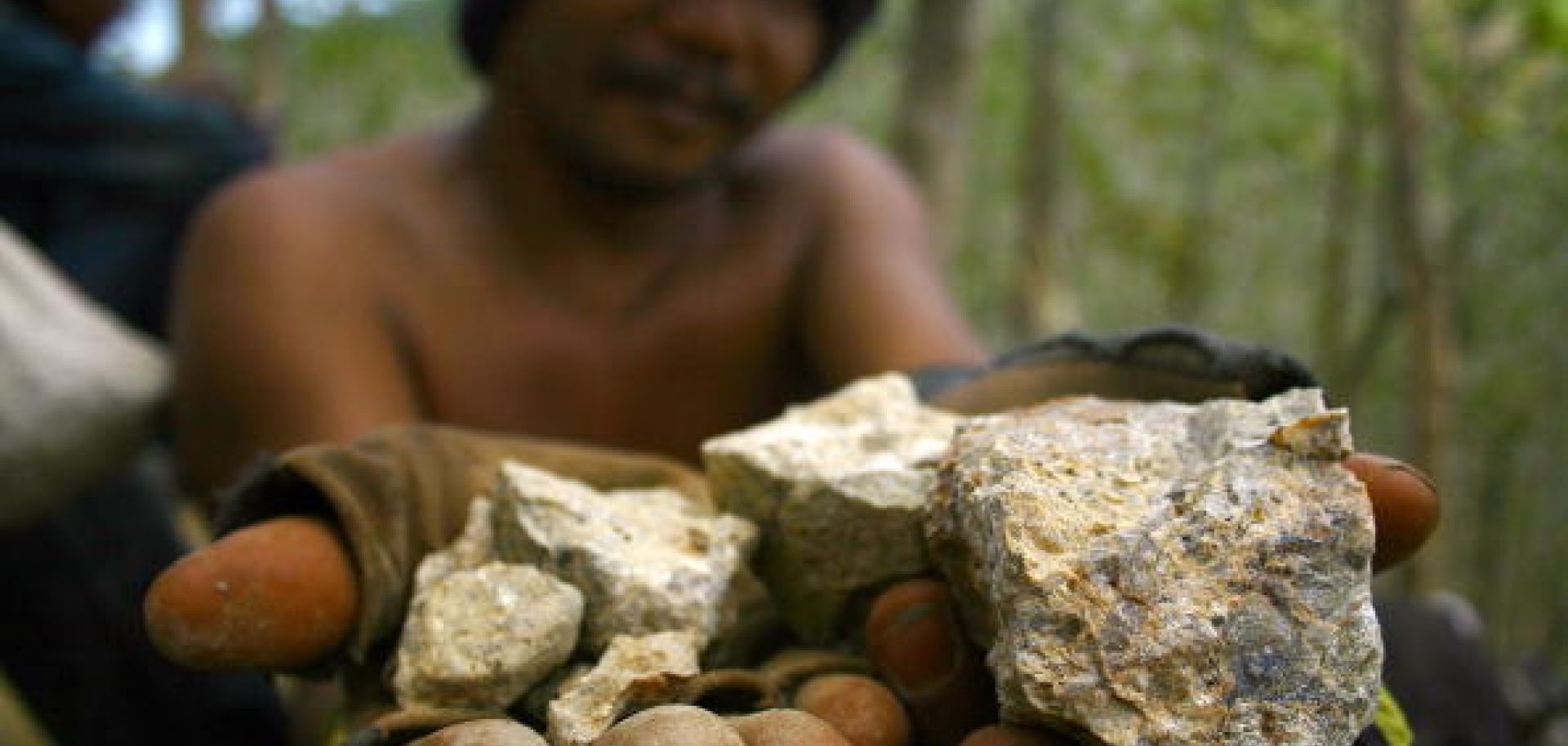ASSESSMENTS
Challenges in Indonesia's Metal Export Plan
Apr 28, 2012 | 13:50 GMT

AMAN RAHMAN/AFP/Getty Images
Summary
The director-general of minerals and coal at Indonesia's Energy and Mineral Resources Ministry, Thamrin Sihite, said April 18 that the country would accelerate the implementation of its ban on the export of 14 unprocessed metal ores. Originally scheduled to take effect in 2014, Sihite said the export ban would take effect May 6 (though Jakarta could still moderate its position and instead implement a tax or quotas, and firms with tangible plans to invest in building processing plants will be allowed to continue to export the metals). The Indonesian government seemingly wants to stop being solely an exporter of raw materials and instead benefit more from its resource wealth.
Many metals traders are concerned by the impending ban, but perhaps none are more concerned than Chinese and Japanese firms. China and Japan are very dependent on Indonesia's supply of bauxite and nickel (used to make aluminum and stainless steel, respectively) as well as several other metals on Jakarta's ban list. Aware of this dependence, Indonesia can push those states to invest in its processing facilities, allowing the country to move up the value chain. In order to run those facilities — which are energy intensive — Jakarta will also need help developing its energy-generation capacity in widespread regions. But despite China's and Japan's dependence on Indonesian metals, the high investment costs of smelting facilities and the time needed to build up the country's power-generation capability will make Jakarta's plan difficult to execute.
Proceed to sign up
Register NowAlready have an account?
Sign In